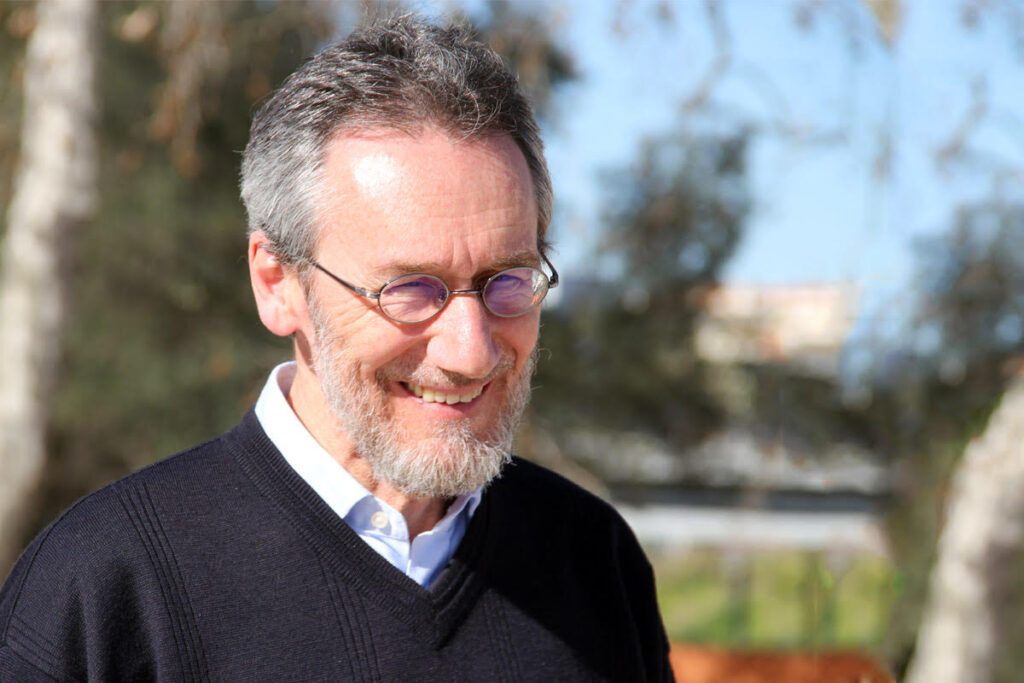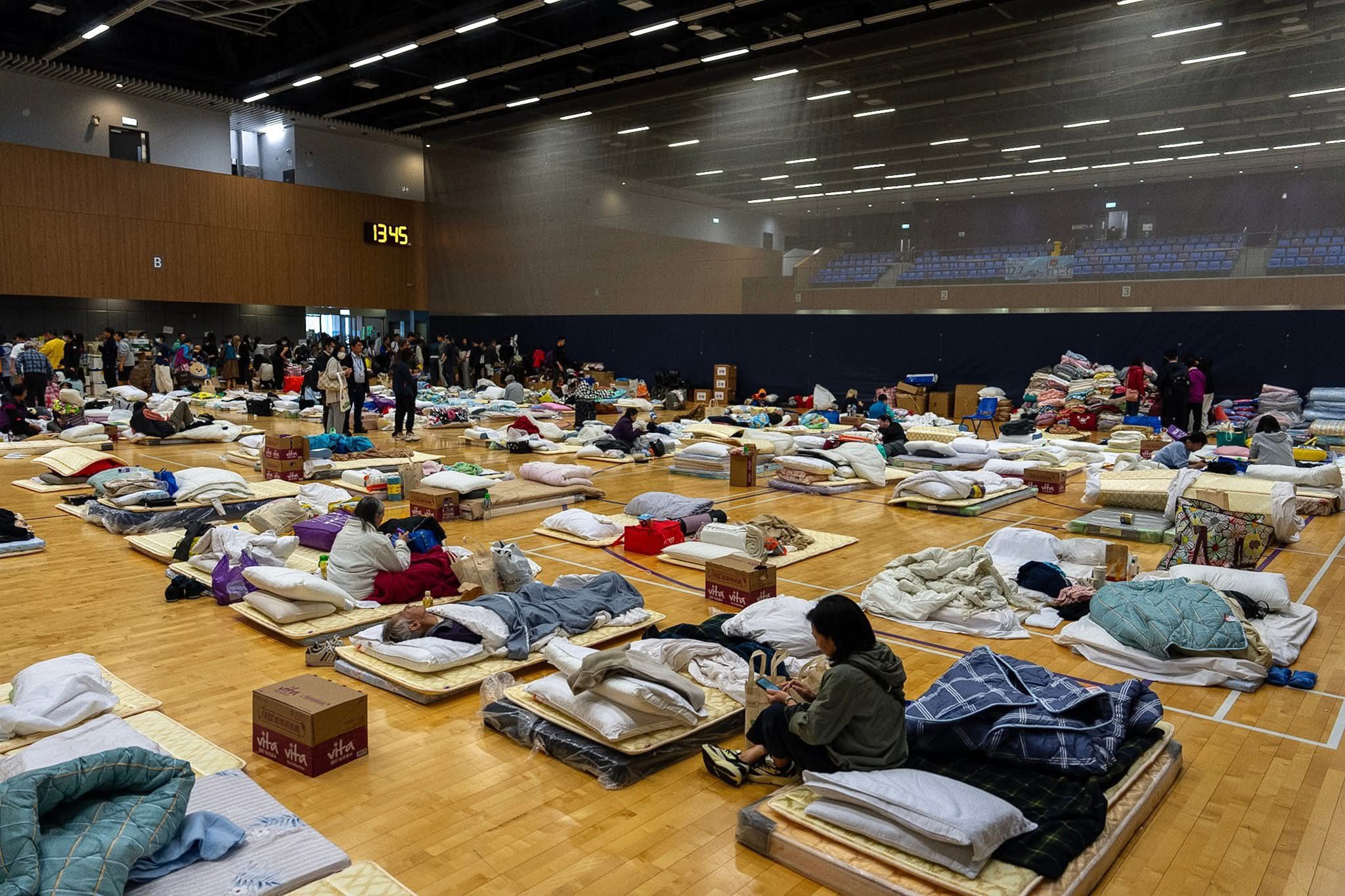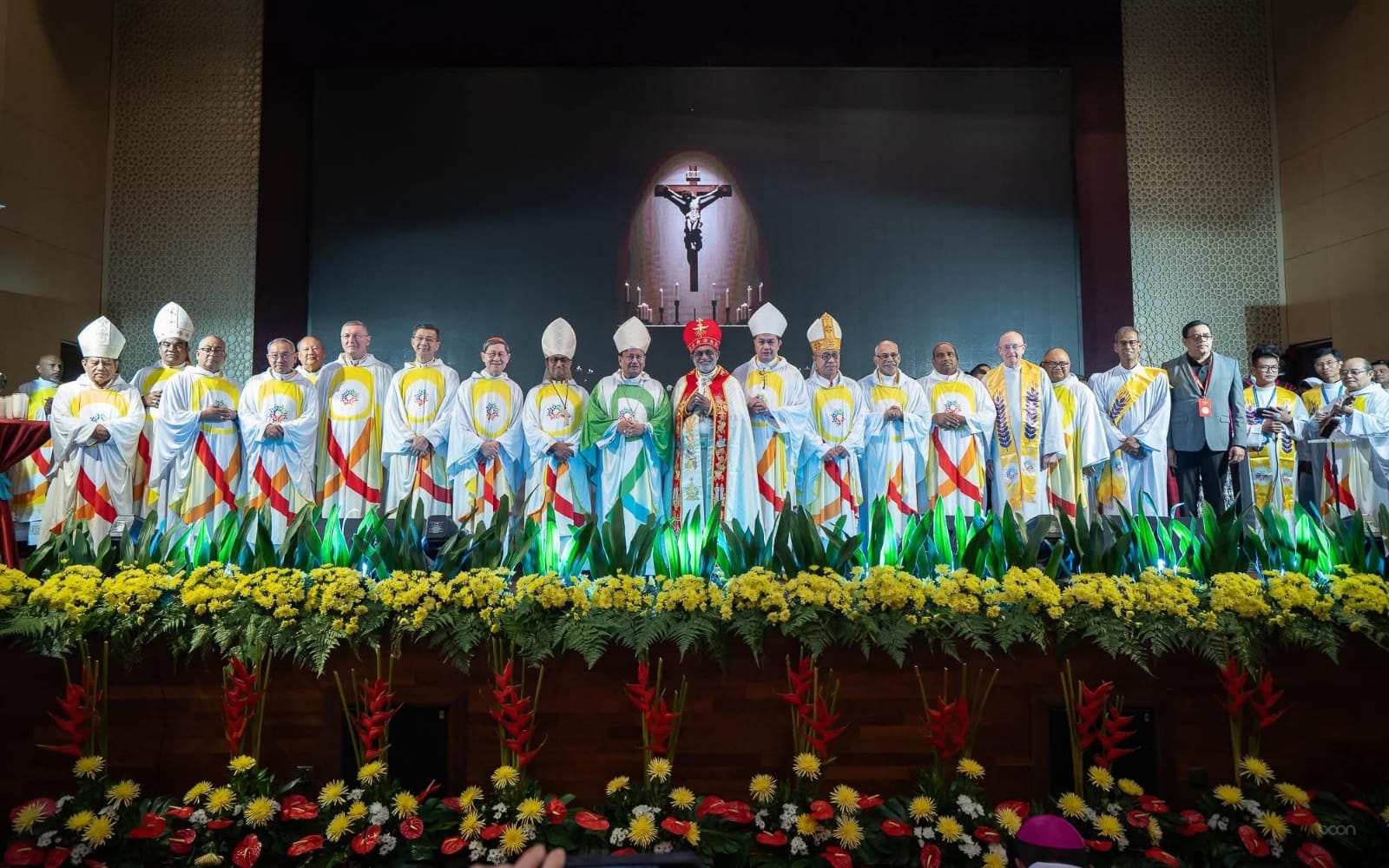Marco Carvalho
Adelino Ascenso, Superior General of the Good News Missionary Society, was already a man on a mission long before he dedicated his life to God. The Portuguese priest decided to take the path to the priesthood after the age of thirty, an epiphany that came to him when he was a guest in a Tibetan monastery in Nepal. An artist converted into a soldier of God, the current helmsman of the Good News Missionary Society strode across Asia and Latin America driven by the same restlessness that led him to devote the rest of his life to missionary work. Father Adelino Ascenso in his own words.
Two thousand years ago, Jesus Christ entrusted the Church with the mission of evangelizing all peoples and spreading the Good News to the ends of the Earth. How is this mission carried out nowadays, at the beginning of the third millennium?
The rapidly accelerating changes and the alteration – or substitution – of references we thought were immutable are reasons for concern about a future that seems uncertain, but they are also an opportunity to open up new fields. At the beginning of this third millennium, in which cultural and religious pluralism is a constant – and in which the phenomenon of migration needs to be taken in consideration – the Church is faced with new challenges, namely with regard to the evangelization of peoples. The essential question that missionaries have has something to do with the “how”: it regards learning how to live together, how to respect the other, how to dialogue with someone different. Inculturation, in the sense of “blossoming” within a culture, is an unavoidable requirement. For this to happen, it is urgent to adequate our ability to listen to what the other has to say. A sort of new paradigm of the mission is needed. Missionaries are now asked to “go and be silent,” “go and listen,” “go and learn,” “go and keep someone company.” The “go and teach” paradigm can obstruct the dialogue in such a way that, in our eagerness to transmit all that we believe in, we neglect, even despise what the other has to teach us.
How hard is it to be a missionary today and honor the teachings of Jesus Christ and the Word of God? What are the main challenges for a missionary in this globalized world we live in?
I would distinguish three main challenges: the diversity of religions, the need for dialogue with those that are indifferent and cultural appreciation. Having in mind such a variety of religions, an open, fraternal, serious and convinced interreligious dialogue is required, without ambitions – more or less veiled – of converting the other, but, at the same time, without falling into the trap of a certain diffuse syncretism, which might lead to the loss of one’s own identity. Regarding those that are indifferent to the Word of God, an anthropological approach is required, to dive head first on the pre-religious dimension of our humanity. That is, that ground prior to any religious nomenclature, where the human being is faced with primordial and common elements, such as suffering, his sense of existence, betrayal, thirst for love. Finally, concerning cultural appreciation and its various manifestations, this presents itself as a great challenge to the missionary, since he often appears stripped of religious clothing. One should look for the signs of transcendence hidden there and those are usually very strong.
What qualities are essential to be a missionary? It takes way more than faith and courage only…
Passion is required, because the history of evangelization began “with a passionate search for the Lord” (Pope Francis, Message for World Mission Day 2021). Without passion, there can be no mission. The missionary will have to immerse himself in a position where he is asked to be humble, to listen and to concentrate his energies on a “methodology to testify,” since words only move when they are an expression of the passion that we carry inside ourselves. And they will only be an expression of the passion that stirs us if they become a constituent element of our being. A missionary must be a transmitter of hope and confidence. Pope Francis said on May 13th , 2017, in Fátima, Portugal , that “the beautiful face of the Church shines when it is missionary, welcoming, free, faithful, poor in means and rich in love”. A missionary – all missionaries – must be fearless and advance into the unknown, with windows open to the Holy Spirit surprises.
Pope Saint John Paul II repeatedly emphasizes in Redemptoris Missio the need to concentrate missionary efforts on the Asian continent, where the demographic growth of non-Christian nations is continually increasing. This means that there are a large number of people who have not yet received the Good News of the Word of God. You have lived in Japan for more than a decade and you know the Asian continent quite well. What’s your perception of the panorama of the Church in Asia?
Excluding the Philippines, South Korea, Vietnam and East Timor, the Catholics are, in numerical terms, an almost insignificant minority in most Asian countries. However, there are places where it exercises a very important role, especially in terms of social word. Regarding the presence of the Catholic Church in Japan, Pope Francis himself said that, despite being small, the Catholic community in that nation is today highly respected by the Japanese because of the service it provides to everyone, regardless of their religion. In other nations – like India, for instance – there is a very meritorious work in the field of inter-religious dialogue, an area that is considered one of the main priorities on the Asian continent, taking into account the diversity of religions and spiritual endeavors that originated there. I believe that the Church in Asia can play an exemplary role, similar to the yeast that makes the dough rise.
As you were saying, a special urgency in terms of mission is the dialogue with other religions. Should it be a concern for the Church and for those whose main aim is to evangelize?
Yes, no doubt about it! Religions play a very important role, as they “offer a precious contribution to the construction of brotherhood and the defense of justice in society,” as Pope Francis claims in Fratelli Tutti (271). The encounter and fraternal dialogue with other religions must be a crucial contribution to a more peaceful and fraternal world. As stated in the Document On Human Fraternity For World Peace and Living Together, signed by Pope Francis and Grand Imam Ahmad Al-Tayyeb, in Abu Dhabi, on February 4th, 2019, “culture must be adopted of dialogue as a path; collaboration as a conduct; mutual knowledge as a method and criterion” (FT 285). Mutual listening leads to emptying ourselves and, in the fullness of our emptiness, the encounter takes place. The Spirit, as the protagonist of the mission, will already be there at work.
You have an unusual path within the Church. You were ordained a priest when you were 43 years old, but before that you already traveled the world and, in a certain way, you adopted the idea of mission as a way of life. Did priesthood bring a greater depth to that purpose?
Priesthood was, in my personal case, the natural continuation of what I had been searching for over the previous years, so, in that sense, it gave me more depth. But I remain an unsatisfied seeker, always on the trail of the “possible God” in situations of great doubt or perplexity.
For those who grew up in Portugal, the idea of mission has always been synonymous with the Good News Missionary Society. What challenges are priests and lay people of the Good News Society facing nowadays? Is the lack of vocations a concern?
I think that the challenges that the priests and lay people of the Good News Society face are transversal to all Institutes: scarcity of vocations, internationality and interculturality, the weight of structure, the fragility and the dimension of the community dimension, aspects that were aggravated by the Covid-19 pandemic.
Missionary vocation is truly a gift and it is one of the Church’s greatest treasures. What would you say to those who feel called to a mission?
I wish they could be fearless and not fear the leap into the unknown. I wish them not to be obstructed by the limiting temptation of “ifs” and “buts”. If you are imprisoned by the anxiety provoked by the “ifs,” you lose your panoramic view and you can’t see the flowers in the garden, the smiles of the children and you might even lose the ability to hear the happy voices of your friend. The “but,” on the other hand, does not allow for total surrender: it is calculating, conditioning the commitment. A love that imposes conditions has not yet matured. I follow you, Lord, but “first allow me to say goodbye to those at home” (Lk 9:61). “I will follow you, but what will I get in return?” “I want to follow you, but…” Jesus’ answer is to cut it: “Whoever puts his hand to the plow and looks back is not fit for the Kingdom of God” (Lk 9:61). Excessive calculation corrodes and numbs us, making it difficult for us to understand that we are called to a renewed missionary “exit” (cf. Pope Francis) that responds to the challenges of our time and fits into the peripheries we face and that may be very close to us. To those who feel called to mission work, I would say that they should not stop dreaming, that they open up to novelty, surprise, amazement and that they witness, with their existence, the confidence and joy. I would tell them they shouldn’t be afraid to take risks, since “the absence of risk is a sure sign of mediocrity” (Charles de Foucault).


 Follow
Follow


